South Korea trains grandmothers to become professional storytellers
The country has launched a program to nurture female seniors as storytellers.
SEOUL, South Korea -- Park Jeonghee, 64, donned a traditional Korean dress embroidered with tiny flowers and sat down in front of a class of preschoolers. Children gathered around her, their eyes twinkling with curiosity and anticipation. Once Park grabbed the audience’s attention with her shiny antique dress, she began to tell a folktale -- on this particular day the title was "Price of smell, price of sound."
She is a professionally trained "storytelling granny."
To foster communication between generations and enhance social participation on the part of the elderly, The Korean Studies Institute launched the storytelling granny program in 2009 to train female senior citizens to tell old tales to kindergarteners.
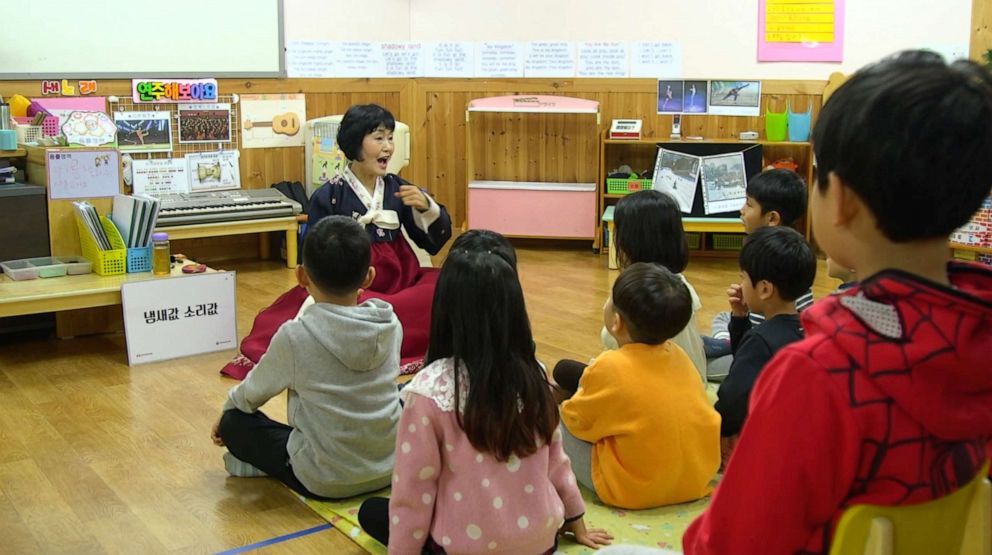
“I tell over 30 stories to children in a year. I hope they grow up remembering at least one lesson from those, so that they become adults with creativity and good nature,” Park, who applied for the storytelling role when her grandchild was born five years ago, told ABC News.
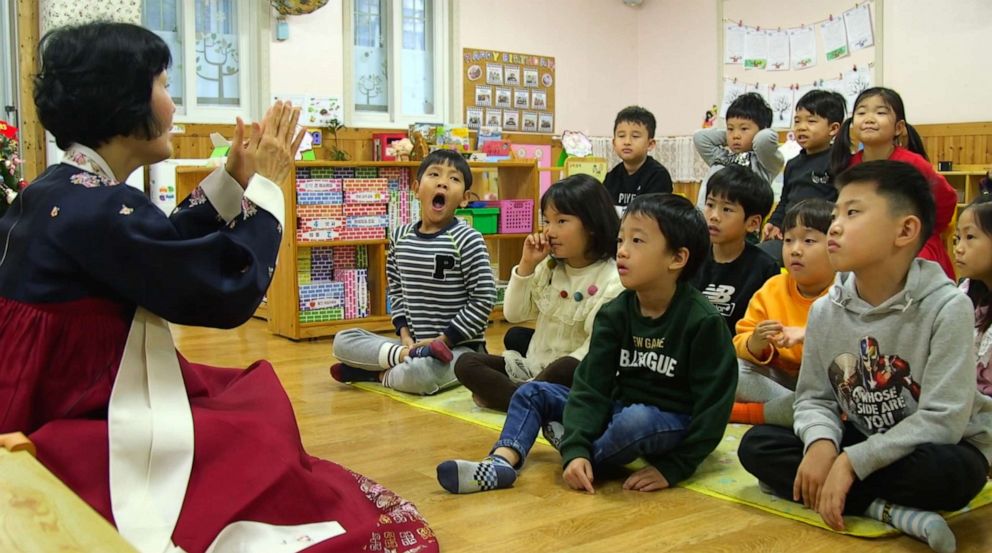
So far, 4,665 women across the country have been officially trained to tell traditional Korean folktales through the program. The number is still increasing to meet the demand of kindergartens.
“Children gain more than just an old tale from the storytelling grandma’s years of experience,” Park Chunhui, a kindergarten instructor with 15 years of experience, said. “Kids at first had a hard time concentrating on a story only with spoken words, but now they look forward to the storytelling grandma coming.”
Storytelling grannies are paid approximately $30 an hour for the activity, but they said the experience was more about meeting children and telling them stories than earning extra money.
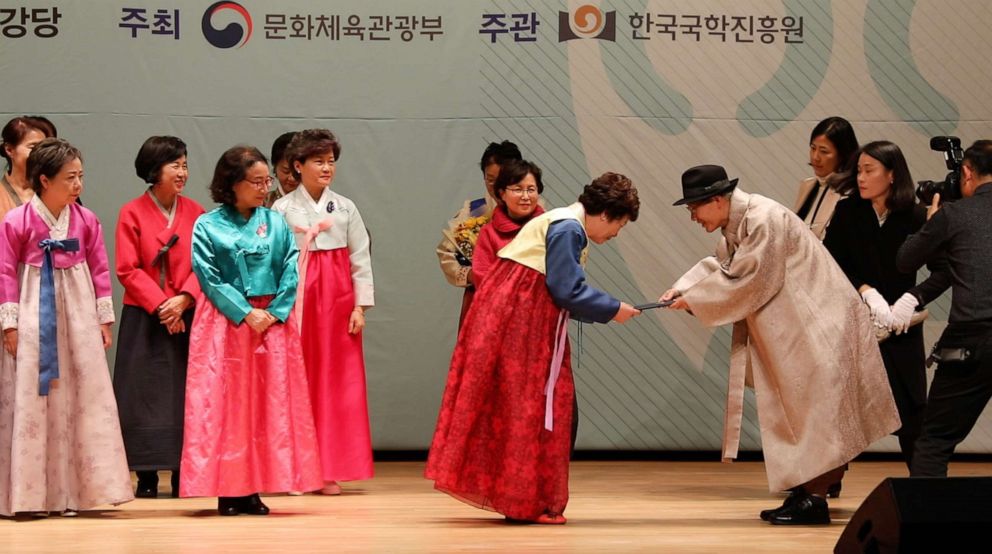
“It’s a crucial time for children to build character and get in the right kinds of habits,” said Shin Youngae, 66, a youth psychology consultant who decided to become a storytelling granny to better understand the people she counsels. “I feel proud and rewarded to be part of this program, since it is the best education there can be for children.”
The Korean Studies Institute recruits storytelling grannies every year through resume screening and interviews. Women from age 56 to 70 who love children are eligible to apply for the role.
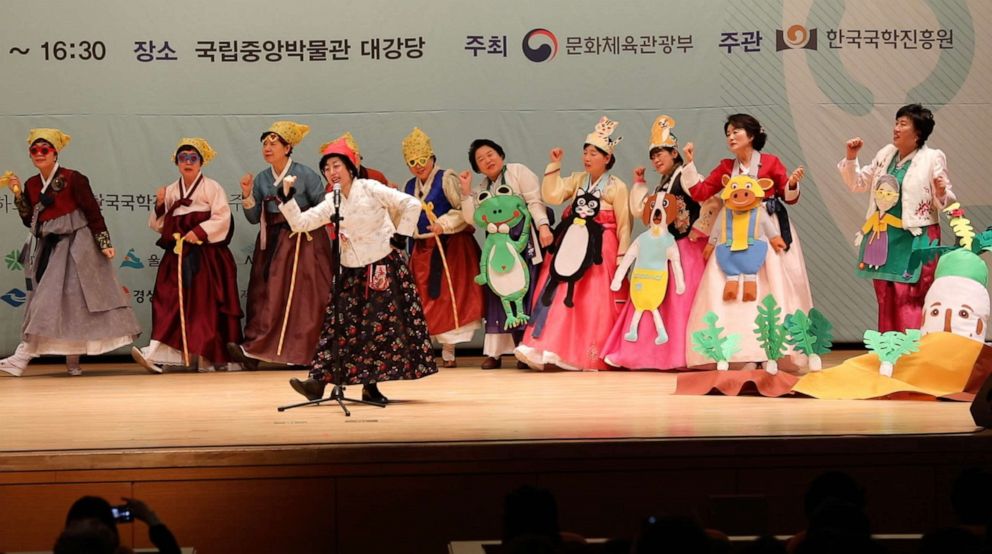
“The selected grandmas go through a 60-hours-long intensive training to deliver old tales,” Kim Sehee, a researcher at the Korean Studies Institute, told ABC News. “The Korean traditional tales are carefully chosen and scripted by experts to convey a consistent moral to children regardless of where they live within the country.”
The program connects storytelling grandmothers with the nearest child care facility. Not only does the program benefit the children, but the grandmothers themselves are able to contribute to the local community.
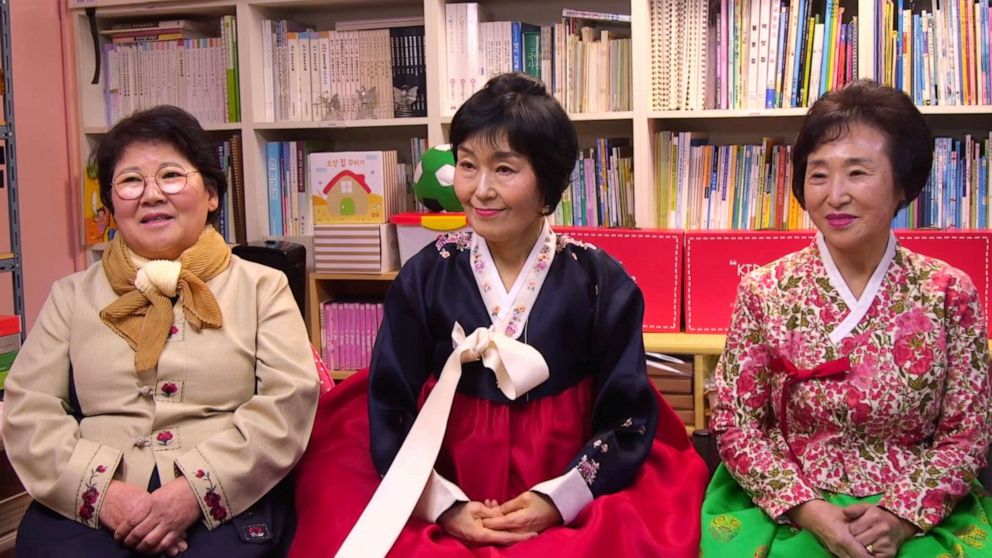
“At this age, most of us don’t have work," said Lee Kyunghee, 65, who has been telling tales as a storytelling granny to children for six years. "But since we have to go to kindergarten in the morning, it has a huge meaning.”
ABC News’ Hansol Park and Kapkoo Kwon contributed to this report.



